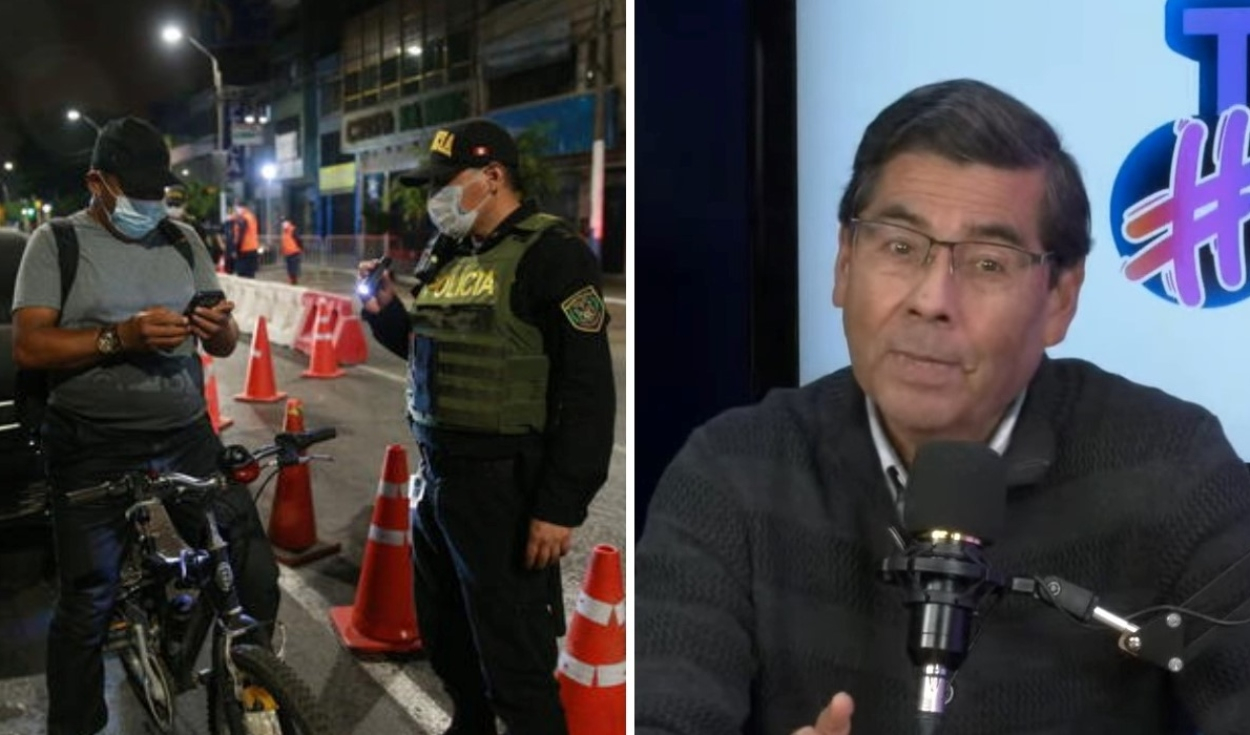
The announcement by the Private Investment Supervisory Agency in Telecommunications (Osiptel) on the temporary suspension of the mass blocking of cell phones not registered on the “white list” of the National Registry of Mobile Terminal Equipment for Security (Renteseg) has sparked a series of opinions from institutions and specialists in the field.
Specifically, the founding lawyer of the Consumer Protection Association, Jaime Delgado, warned of the implications of this type of measures and clarified some doubts of citizens regarding whether the officers of the National Police of Peru (PNP) are authorized to check cell phones to obtain their IMEI code.
Can a police officer ask you for your cell phone on the street and check it?
During the broadcast of his program on LR+, lawyer Jaime Delgado referred to the decision of Osiptel and the Ministry of the Interior to cancel the blocking of cell phones that are not registered on the “white list” of Renteseg. To better explain this issue, he gave as an example the unexpected inspections of these devices carried out by some agents of the National Police to detect phones of dubious origin.
This unpleasant situation occurred a week ago to a young worker, who bought a cell phone in a well-known store and was stopped on the street by a PNP officer with the excuse of verifying that her mobile device was not cloned.
“The police officer told her that her phone had a cloned IMEI. So, they took her to the police station and told her that they were going to report her to the Public Prosecutor’s Office. Three weeks went by and finally the Public Prosecutor’s Office closed the case because they were investigating her for the crime against intellectual property. Then, they wanted to involve her in other absurd processes,” Delgado explained.
She also said that the case was closed, the young woman’s cell phone was returned to her and the company gave her a certificate informing her that her cell phone is on the “white list” of the National Registry of Mobile Terminal Equipment for Security (Renteseg). However, in the Osiptel system, her mobile device appears as cloned and is blocked, to date.
“Several countries that tried to create this white list of cell phones to combat crime have failed because they have realized that this does not work. In Mexico, there is a ruling by the Constitutional Court that declares this measure unconstitutional. In the proportionality test, what is being evaluated is that these white lists put your personal data and privacy at risk,” he added.
Finally, he said that these types of measures should be seriously evaluated because they are already causing harm to consumer rights. He also clarified that A police officer cannot ask people for their phones in order to check them unexpectedly, as determined by the Public Prosecutor’s Office in the case of the young woman affected.
In what cases can the police ask you to hand over your cell phone?
According to Jaime Delgado, a police officer cannot arbitrarily request a citizen’s cell phone to verify its IMEI code. Only in These casessuch a review may be justified:
- In the event of a flagrant crime.
- Based on a court order for the seizure of these devices.
Source: Larepublica
Alia is a professional author and journalist, working at 247 news agency. She writes on various topics from economy news to general interest pieces, providing readers with relevant and informative content. With years of experience, she brings a unique perspective and in-depth analysis to her work.












